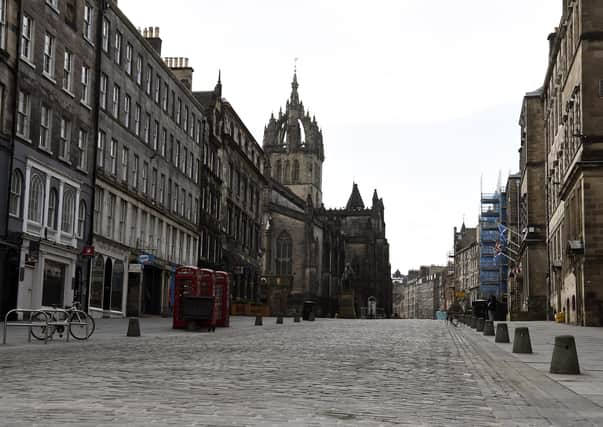This is our chance to think about the kind of society we wish to be – Dr Rebekah Widdowfield & Professor Dame Anne Glover


Over the course of a few short weeks, the Covid-19 pandemic has rendered our daily lives virtually unrecognisable. Many businesses have shuttered their doors. Schools lie dormant. Famed tourist destinations stand deserted. As people await word of a return to normality, policymakers must navigate a rapidly changing context in order to safeguard the nation against further disruption and prepare for recovery after the outbreak has subsided. Scotland’s people and economy have already suffered profound impacts and informed decision-making will be critical to mitigating the worst of these.
Robust evidence can decipher the uncertain and guard against costly conjecture. In a time of sometimes sensationalised media headlines and the deliberate disinformation of fake news, it can also be a source of comfort. This is not to say that evidence is static or indisputable. Rather, generating evidence is a dynamic process of building on what we already know to uncover what we do not. We do not yet have a vaccine for COVID-19, but we know how to develop one thanks to discoveries in fields like microbiology and medicine. We might not know the exact number of Covid-19 cases Scotland will ultimately report, but we can use statistics to model and plan for different scenarios. We cannot predict how any one individual may react to lockdown measures, but we can look to psychology to help design effective large-scale behaviour change campaigns. In the face of an issue as fast-moving and all-encompassing as Covid-19, the value of robust evidence in guiding national responses and providing sound information to citizens cannot be overstated.
Advertisement
Hide AdAdvertisement
Hide AdThe Royal Society of Edinburgh (RSE), Scotland’s National Academy, has as its mission, “knowledge made useful” and now, more than ever, we are determined to deliver on that mission. RSE Fellows represent some of Scotland’s foremost experts and practitioners across a range of fields. They comprise eminent researchers, engineers, leaders, innovators, creative arts professionals, educators, entrepreneurs, and more. Though their disciplines may vary, they share a common aim of offering their expertise freely for the public good.
The RSE has a long legacy of providing sound, trustworthy, independent evidence to policymakers to inform their decision-making. Through its publications and inquiries, the RSE has built up a considerable body of multidisciplinary knowledge and evidence that can be drawn upon to answer policy questions spanning the sectors, from the economic to the environmental, the scientific to the social. In addition, our convening power and wide-ranging networks across both Scotland and abroad allow us to rapidly mobilise a range of respected voices and perspectives to debate issues and provide up-to-date advice. No other organisation in Scotland has access to this breadth of academic and practical expertise, making the RSE one of Scotland’s most important sources of cross-cutting and contemporary evidence and understanding. Further, through its varied programme of public engagement activities, the RSE is committed to sharing and discussing knowledge and experience directly with the people of Scotland and gathering their views on how it should be used to shape our society.
Against that backdrop, RSE is establishing a Post-Covid-19 Futures Commission to support Scotland in emerging as positively as it can from the current pandemic. Bringing together leading practitioners and thinkers from across society, the Commission will help identify and address some of the immediate policy implications of the outbreak and promote discussions around some of the bigger questions that the pandemic – and our response to it – raise about the kind of society we wish to be. In some ways, the questions we ask in the aftermath of COVID-19 could be more important than those we pose in the present. The upheaval brought on by a national crisis, while overwhelming, can also be an opportunity to learn important lessons and make fundamental improvements to our current processes and institutions that are informed by evidence, expertise, and public dialogue.
There is no doubt that globally we are facing a most enormous challenge in dealing with COVID-19 and our way of life and economies will be subject to substantial disruption. However, our hope is that we might use this crisis as an opportunity to think critically about the present structures of our society so that we may build a better future.
Dr Rebekah Widdowfield, chief executive and Professor Dame Anne Glover, President of the Royal Society of Edinburgh
Comments
Want to join the conversation? Please or to comment on this article.